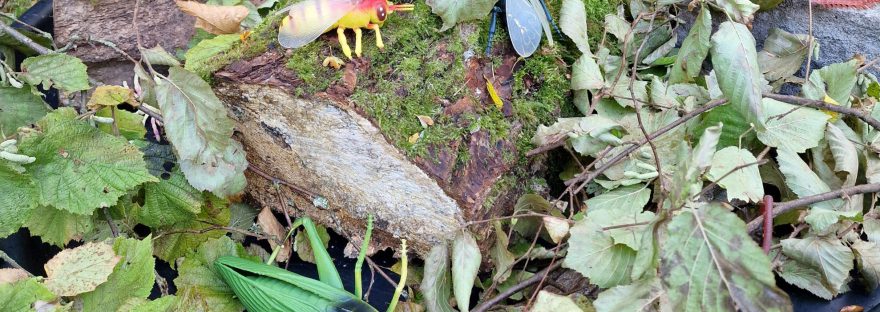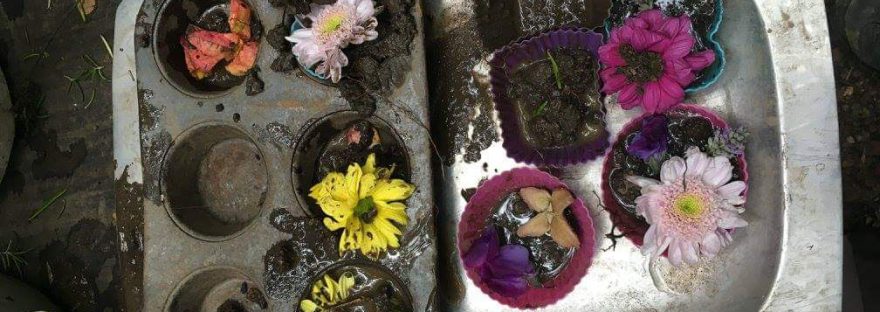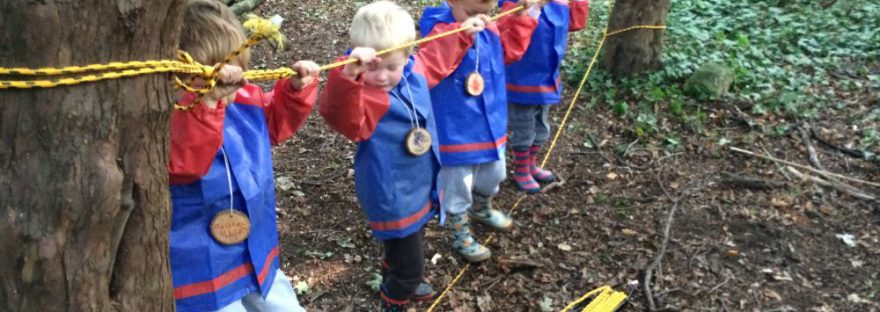Childhood is filled with natural wonder and curiosity. The learning environment must inspire a sense of wanting to investigate, to find out and to explore – Kathy Walker
Have you ever looked at how you can support your child’s development through their toys? Most shop bought ‘scenes’ are quite often bright coloured plastic which has limited play opportunities. Let’s take a look at these two play set ups.
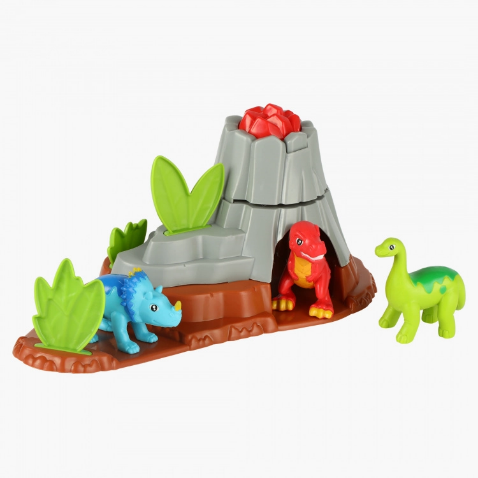
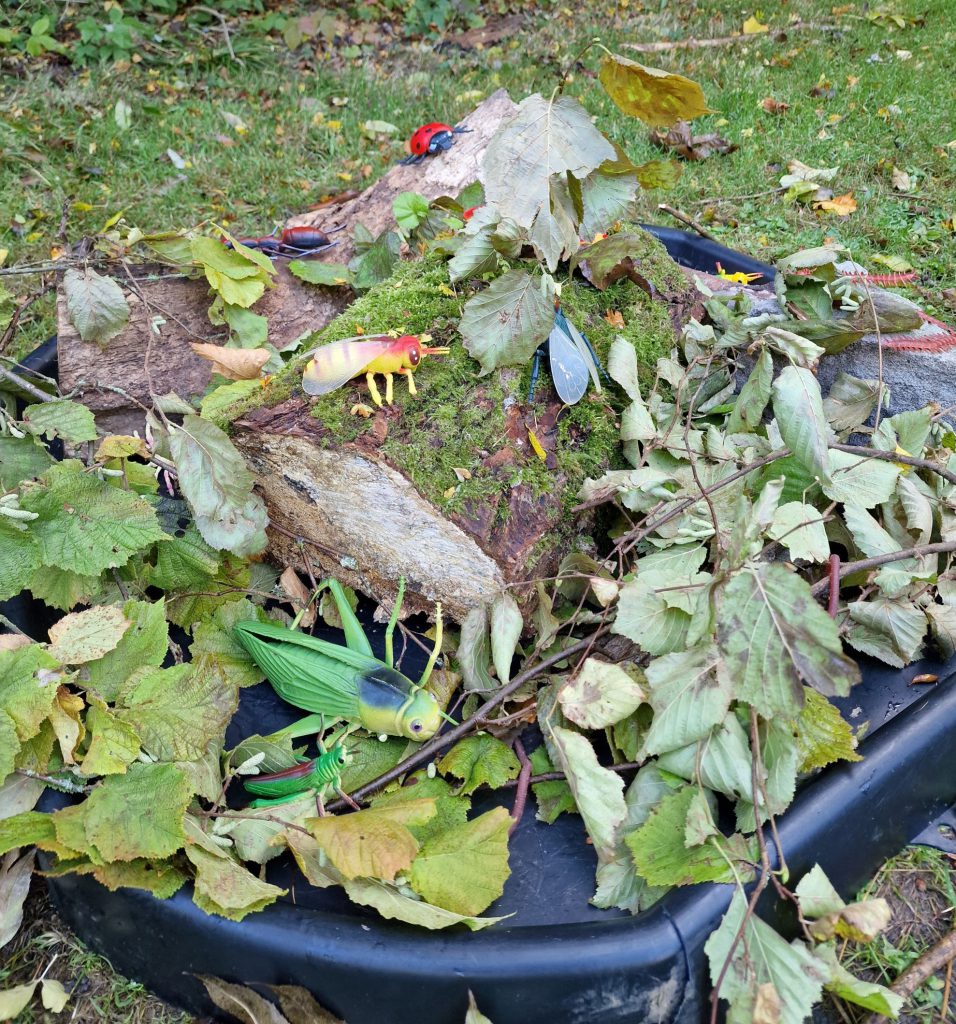
One is shop bought and the other is made up of natural objects anyone can find outside. They both have rocks and leaves but the language content we can expose our children to are so much more limited with the shop bought set up.
For example, words for a rock in the shop bought set could be; small, smooth and grey. Compared to the real rock which could be; cold, hard, rough, heavy, dusty and so much more!
Forest Friends Woodland Playgroup offers a range of ‘real’ experiences for young children; using mud to make mud pies; rocks, sand and gravel with the trucks; or using real leaves with scissors to develop those fine motor skills. Providing plenty of opportunities for your child to develop a multitude of skills ready for school.
When using objects from the natural world, children can express themselves freely and unlike an indoor playgroup, there aren’t any space constraints meaning children can jump, shout and explore to their hearts content.
It’s important to allow young babies and toddlers to access the outdoors from a young age so they can develop their love for nature and the environment. It is through these early experiences that young children make key connections in their brain and learn to make a sense of the world; something that cannot be achieved by indoor play alone with those bright coloured plastic toys.
Nowadays there’s appears to be an increase of young children experiencing development delays. This could possibly be linked to the ‘indoor’ generation, where children have a lack of opportunity to move, crawl, jump, climb; and to explore the natural world. It could also be linked to the ‘technology’ generation, where children are given an ipad to watch their favourite programmes for hours on end.
When children play outside, they learn about the environment and experience all weathers and seasons; no iPad can replicate that. Regular outdoor play supports children to develop their self-initiated play by using natural resources to build dens or make that fairy home. Exploration allows for them to develop their curiosity, creativity, confidence, social skills, and communication, empathy, and risk-taking abilities.
With new babies comes new excitement for parents to join playgroups and sensory classes; and while these classes can be highly engaging and stimulating for young children, let’s not forget about the richness of ‘just being outside’. Within the natural world, comes an abundance of learning opportunities especially with our seasonal changes. So why not come along to Forest Friends Woodland Playgroup and see how your child can develop using natural resources and fun outdoor activities!
To view the latest timetable www.forest-friends.co.uk
Follow me on Facebook www.facebook.com/forestfriendswoodlandplaygroup
Follow me on Instagram https://www.instagram.com/forestfriendswoodlandplaygroup/

